Events
| Name | organizer | Where |
|---|---|---|
| MBCC “Doing Business with Mongolia seminar and Christmas Receptiom” Dec 10. 2025 London UK | MBCCI | London UK Goodman LLC |
NEWS
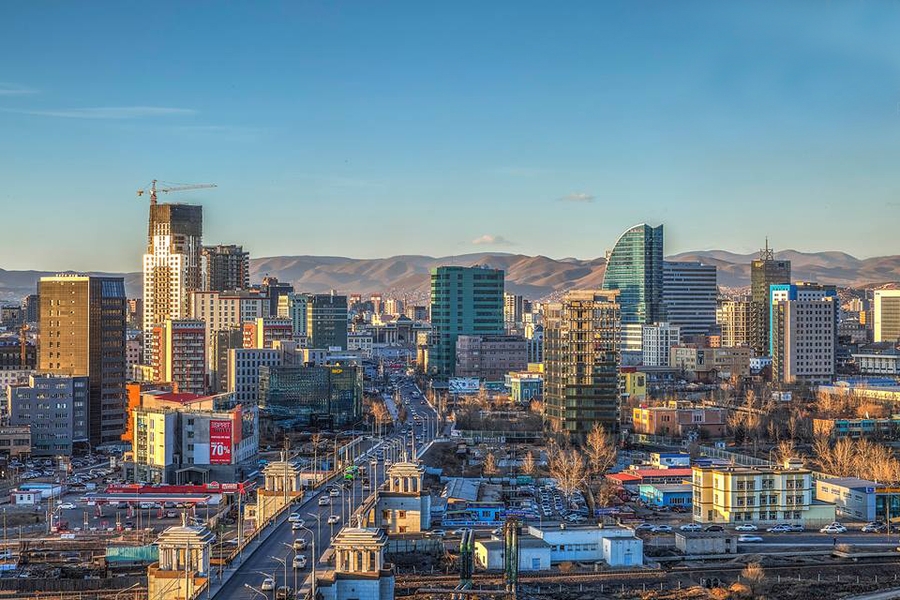
Doing Business In Mongolia - 2021 www.mondaq.com
Tremendous mineral reserves, agricultural endowments, and proximity to Asia's vast markets make Mongolia an attractive destination for medium to long-term foreign direct investment (FDI). The Gross Domestic Product (GDP) in Mongolia is worth 16.20 billion US dollars in 2020. The GDP value of Mongolia represents 0.02 percent of the world economy. GDP in Mongolia averaged 4.44 USD Billion from 1981 until 2018, reaching an all the time high of 13.01 USD Billion in 2018 and a record low of 0.77 USD Billion in 1993. The significant features and advantages of Mongolia:
Diversified and growing market exists in Mongolia;
Technology Innovation Hub;
Large mineral resource base that can be leveraged for value added processing;
Developing Industry and Infrastructure;
A bridge between the two economic powerhouses of Russia and China;
Young, well-educated population;
Private Sector & Privatization /privatize major state assets, list Mongolian conglomerates and exploration license aggregators on MSE/;
PPP & Modernizing Infrastructure;
Rule of law &Regulatory Quality &Transparency;
Ensuring guarantee for investors /tax & nontax/;
Promising mega projects; and
Thriving Telecoms & IT sector.
International framework: Mongolia is persistently discussing to enter bilateral and multilateral agreements and actively participates in the process of regional integration. Till to this day, Mongolia has established Foreign Investment Protection and Promotion Agreement with 43 countries and Double Taxation treaties with 26 countries. Moreover, Mongolia is the member of the Seoul Convention establishing the Multilateral Investment Guarantee Agency and Washington convention on the Settlement of Investment Disputes. Consequently, in April, 2014, Mongolia has introduced its investment policy and the law to UN Conference on Trade and Development /UNCTAD/.
Analyzing the overall performance of Mongolia on a global level, international indexes of different type have shown the following results:
According to the World Bank's "Doing business – 2020" report, Mongolia is ranked 81st among 190 economies in the "Ease of doing business"; and
According to "Index of Economic Freedom 2021" by Heritage Foundation organization, Mongolia's economic freedom score is 62.4 and is ranked 86th among 178 countries. The scores in the categories such as Judicial Effectiveness and Government Integrity are low.
Law on Investment /2013/: In 2013, the Parliament of Mongolia passed a new law on investment, which replaced both the old Investment law of 1993 and the Law on Strategic sectors. The new Investment law enables as open as possible investment environment for investors focusing on:
No approval is required to enter into the market and buy a local company;
No discrimination between foreign and local investors;
Fast registration process;
Stability guarantees- Provision of Tax stabilization certificate; and
Flexibility and friendly conditions for investors.
Investment types:
Joint Ventures, Consortium;
Mergers and Acquisition;
Concession (PPP), Product sharing, management contract;
Bond, Securities and other assets;
Financial leasing, Franchising; and
Other investment types.
Legal forms for doing business in Mongolia
Despite the fact that Mongolian legislation provides for a wide range of legal forms of commercial entities (limited liability company or LLC, joint-stock company or JSC and joint venture), in practice, private businessmen and foreign investors mostly prefer with foreign invested LLC. Representative office of foreign legal entities is also common.
Limited Liability Company (LLC) with a foreign investment
According to the law, a foreign invested company is defined as "a business entity with an overall equity of US$100,000 or more (or MNT equivalent), where not less than 25% must be owned by (a) foreign investor(s)". Investments into Mongolia can be made in the following ways:
By establishing a solely or jointly owned business entity;
Through the purchase of a Mongolian companies' shares, bonds, and other types of securities;
Through merging or wholly acquiring Mongolian and foreign companies;
Through the establishment of franchise or financial leasing agreement; and
In other ways acceptable and not prohibited by law.
If two or more investors are planning to incorporate a foreign invested LLC in Mongolia, each investor must invest 100,000 USD or MNT equivalent.
An LLC is the most frequently used form of a legal entity established by one or more individuals or legal entities – founder/s/ or investor/s/ – who are not liable for its obligations while bearing the risk of losses related to the company's activity to the extent of their personal contributions (participatory interests). The liability of the company is limited to its assets.
The bodies of a limited liability company are:
the supreme body of a company shall be the Meeting of Shareholders(MoS).LLC has exclusive powers with respect to the issues covering business, finance, management, and structure of the company.
The executive body of a company (individual or collective). The day-to-day management of the company is performed by the Director (individual executive body) or Board of Directors (collective executive body), who are elected at the MoS. Under Charter of the company, power of management or management team shall be defined clearly. The authorities entrusted to the Board of Directors shall be specified in the Charter of the company. The company may also have a Supervisory Board, which is, however, not mandatory.
Any amendment on Charter such as change of shareholder, address or business activity is required to be registered at the State Registration authority per relevant laws. The state registration certificate of the LLC with foreign investment has a term of 1 or 2 years. Prior to expiry date of the state registration certificate, the representative of the LLC with foreign investment shall apply for extension.
Joint-Stock Companies (JSC)
A JSC is a legal entity, which issues shares in order to raise capital for its activities. The types of JSC shall be open or closed. An "open JSC" is a company whose capital invested by the shareholders is divided into shares, which are registered at the securities trading organization and which may be freely traded by the public. A "closed JSC" is a company whose capital invested by the shareholders is divided into shares, which are registered at the securities depositing organization, and which are traded in the market in a closed extent outside of the securities trading organization.
The open JSC may have an unlimited number of shareholders. Shareholders are not liable for the obligations of the JSC, but bear the risks of losses within the value of their shares. A JSC has assets separated from the assets of its shareholders, and shall not be responsible for their obligations.
The JSC is managed by the Meeting of Shareholders (MoS), Board of Directors, and Executive Body. The MoS is the supreme management body of a JSC, which decides upon the most priority issues such as the company's management, administration, business policy, corporate structure, financial aspects, elections and some other issues.
The Board of Directors performs overall management of a JSC covering lower priority issues such as finances, policies development and implementation, etc., except for the issues referred by the Law and the Charter to the exclusive competence of the MoS.
The management of daily activities shall be performed by the Executive Body. The Executive body may be collective or individual. The Executive Body shall have the right to undertake decisions on the issues relating to the company's activities, which are not considered by the laws/legislative of Mongolia and the company's Charter as being the competence of other bodies and officials of the company.
Representative Office
Representative offices of foreign legal entities are not deemed to be legal entities, but legal entity, a representative office is not entitled to conduct business activity, which would result in income generation in Mongolia. As a subdivision of a foreign legal entity, a branch may fulfill all or a part of the functions of its parent company.
To read the full article click here
The content of this article is intended to provide a general guide to the subject matter. Specialist advice should be sought about your specific circumstances.

Mongolia reports 349 new cases of COVID-19, seven deaths www.montsame.mn
Daily COVID-19 press briefing for today, May 18, by the Ministry of Health, reported that 349 new coronavirus cases were detected in the past 24 hours across the country.
In specific, 318 new cases were confirmed in Ulaanbaatar city, six were hospital-acquired cases, and 25 cases were detected in rural regions. As a result, the nationwide infection tally is now 49,524.
In the last 24 hours, 877 patients made recovery, making the total recoveries 42,721. As of May 18, a total of 3,870 patients are undergoing treatment at hospitals in Ulaanbaatar city and the rural aimags. Among them, 104 patients are in serious conditions, reports the National Center for Communicable Diseases (NCCD).
The NCCD also reported seven new COVID-19 related deaths, raising the country's death toll to 221.
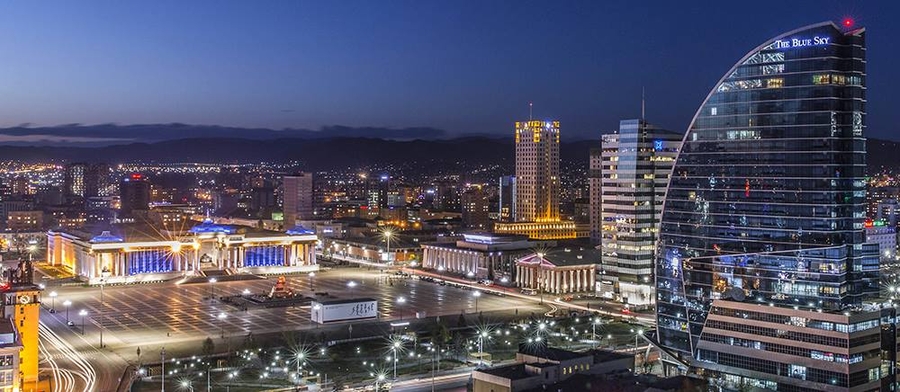
Mongolia's GDP grows 22.5 pct in Q1 www.xinhuanet.com
May 17 (Xinhua) -- Mongolia's gross domestic product (GDP) grew 22.5 percent year on year in the first quarter of 2021, official data released by the country's National Statistics Office (NSO) showed Monday.
The GDP amounted to 9.2 trillion Mongolian Tugriks (about 3.22 billion U.S. dollars) in the January-March period, the NSO said.
The significant increase was mainly due to revenue from the mining sector, which grew by 34.1 percent, according to the statistical agency.
Mongolia is rich in natural resources, and the mining sector has been one of the main drivers of the country's economic growth for many years.

Steppe Gold says cold weather disrupted production in Mongolia in first quarter www.kitco.com
Steppe Gold (TSX: STGO) reported today that it produced zero ounces of gold in Q1 2021. The company said it has paused leaching and gold production at its ATO mine in Mongolia in first quarter as cold weather made leaching conditions less favourable.
The company added that this cold weather disruption will be remedied for the 2021/22 winter season with the installation of a boiler plant to heat process water nearing completion.
Steppe Gold’s revenue for the three months ended March 31, 2021 was $1,634,000 on sales of 945 gold ounces and 861 silver ounces with average realized prices per ounce of $1,938 and $26 respectively.
During the three months ended March 31, 2021, 170,130 tonnes of ore was mined and 189,283 tonnes of ore was stacked on the leach pad with an average gold grade of 1.91 g/t and an average silver grade of 10.1g/t. Steppe said it resumed leaching and production in early April 2021 with a successful gold pour in late April.
The company said it is targeting annual production in 2021 and 2022 of 50,000 oz and then a transition to the fresh rock ores in 2023. However, the achievement of full year production forecasts is dependent on no further delays on procurement due to COVID 19, Steppe explained. Reagent supplies are currently unpredictable and any further delays will reduce production forecasts for 2021, the company warned.
By Vladimir Basov
For Kitco News

Sole leader Terunofuji completes perfect opening week www.news.mn
Ozeki Terunofuji finished the first week of the Summer Grand Sumo Tournament with a perfect 7-0 record. The sole overnight leader remained the only undefeated wrestler through seven days at Tokyo’s Ryogoku Kokugikan, where entry is capped at 5,000 fans per day under the ongoing coronavirus state of emergency.
Gunning for his second consecutive Emperor’s Cup, Terunofuji continued his imposing run at the 15-day meet by dispatching Takanosho (3-4) with a slap down.
The 29-year-old Mongolian maintained his composure and momentum after Takanosho fended off his opening attempt at a belt grip and wrenched the sekiwake to the clay. Terunofuji has now won 12 straight bouts, since Day 11 of March’s Spring tourney.
One of four ozeki sharing top billing in the absence of injured grand champion Hakuho, Terunofuji has stood head and shoulders above the other wrestlers at sumo’s second-highest rank in the first week of competition. Winning a fourth top-level championship here would continue a remarkable comeback story for the powerfully built grappler, whose victory in March clinched his promotion back to ozeki.He previously held the rank in September 2017, before debilitating injuries to both knees saw him plummet as low as the fifth-tier Jonidan Division.

Investments worth almost $25 billion inked at Silk Road expo www.rt.com
A number of cooperation deals involving investments of 158.3 billion yuan ($24.6 billion) were sealed at the Fifth Silk Road International Exposition in China, Xinhua News Agency reported.
The agreements cover 72 key projects in sectors including education, modern agriculture, and high-tech industry. Foreign investment projects worth $7.7 billion have been also signed at the expo, according to the report.
The five-day expo in Xi’an, the capital of northwest China’s Shaanxi Province, attracted more than 1,900 envoys and guests from 98 countries and regions such as Slovakia, Belgium, the Republic of Korea, Tajikistan, and Zambia.
The ambitious multi-trillion-dollar Belt and Road Initiative (also known as the ‘New Silk Road’), announced by Chinese President Xi Jinping in 2013, aims to boost connectivity and cooperation between East Asia, Europe, and East Africa. It is expected to significantly boost global trade, cutting trading costs in half for the countries involved.
According to official data, the total trade turnover between China and the Belt and Road nations amounted to $9.2 trillion from 2013 to 2020, while combined investment by Chinese enterprises in those countries reached $136 billion.
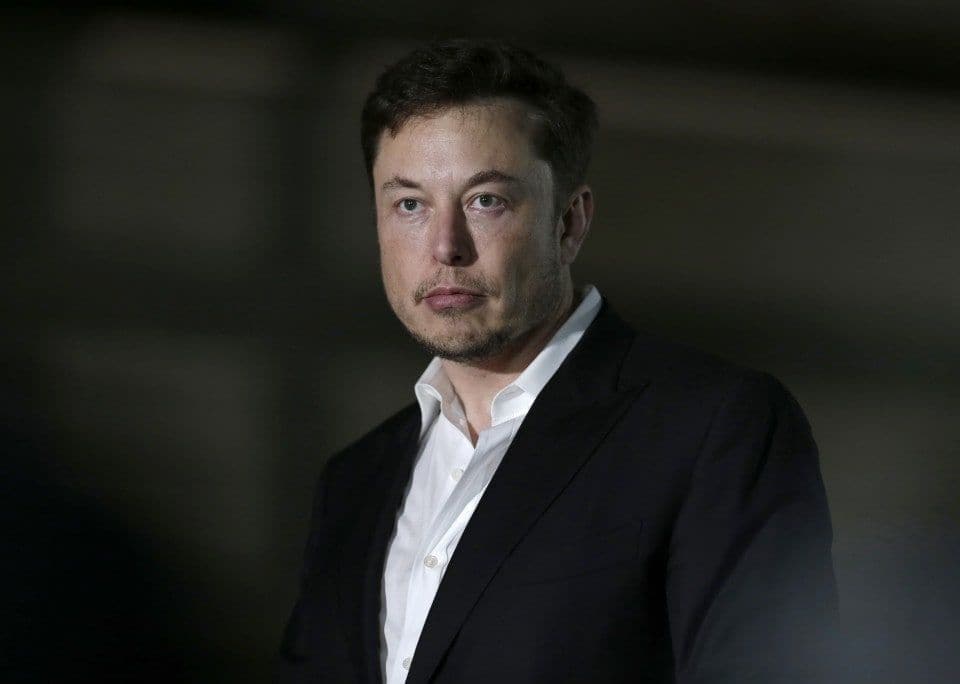
Elon Musk crushes bitcoin again with just one word www.rt.com
The world’s largest crypto, bitcoin, went into freefall on Sunday, after billionaire Elon Musk fueled speculation in a Twitter exchange that his company, Tesla, may consider selling or has sold its holdings in the cryptocurrency.
“Bitcoiners are going to slap themselves next quarter when they find out Tesla dumped the rest of their #Bitcoin holdings,” a user named CryptoWhale said in a tweet on Sunday. “With the amount of hate @elonmusk is getting, I wouldn’t blame him,” he added.
Musk simply responded with a single word: “Indeed.”
The price of bitcoin sank almost 8.5% afterwards to as low as $42,441 a coin on Monday. That was the biggest slump in more than three months, and one of bitcoin’s biggest drops in value since the price first began to soar in January.
Last week, Musk hit the top crypto with an unexpected announcement that Tesla was suspending purchases of its vehicles using bitcoin, due to environmental concerns. The billionaire cited issues with the increasing use of fossil fuels in mining bitcoin, particularly coal, as it takes massive amounts of electricity to create a single token. He added that Tesla had no plans to sell any more of its bitcoin, but confirmed that the company is looking at other cryptocurrencies that are much less reliant on energy.
Just three months ago, Musk, a big supporter of cryptocurrencies, revealed that Tesla had invested $1.5 billion in bitcoin. In March, he announced that the automaker would accept the cryptocurrency as payment for Tesla’s pricey electric vehicles.
The announcements sent bitcoin prices soaring at the time.

How Mongolia can attract digital nomads www.mongoliaweekly.org
I'm writing this article from the front room of my house. Later I'll probably take my laptop to a café for a change of scenery; next week I might even take it on a road trip.
Like many in this Covid world, I work from home – which in effect makes me a 'digital nomad', someone who only needs an internet connection (and often a mobile phone) to do their job. This type of work has become much more common: according to the Economist, Americans now spend 60 percent of their working hours at home compared to just 5 percent before the pandemic.
Not all digital jobs are equal, of course. Many employers still require staff to physically be in an office for a set number of days per week and there are open questions about whether this flexibility will remain post-pandemic. Nonetheless, many roles have undoubtedly become more flexible and will likely remain so for the foreseeable future.
This is opening up opportunities for countries to attract digital workers looking for new lifestyles.
Newspapers in Nepal, for instance, have spoken with people working in Kathmandu for jobs based in Myanmar; and reporters in Florence, Italy have covered the rise of remote workers settling there.
Countries are clueing into this trend and are competing to attract workers who can bring their jobs with them. Italy has tax breaks of up to 90 percent for five years for workers settling in certain regions; Spain offers a self-employment visa; Estonia has 'e-residents' who can run an Estonian business without ever actually going there; Croatia and Dubai offer digital nomad visas; Norway even offers a lifetime visa to any remote worker willing to live on the island of Svalbard in the Arctic Circle.
Like many of these countries, Mongolia has a lot to offer. It has the lowest population density of any independent country and a globally unique nomadic culture; it has a wide variety of breath-taking landscapes ranging from mountain lakes to one of the last mostly-intact steppe ecosystems on Earth.
In addition, the speed of Mongolia's vaccine rollout is leading the world, meaning the country could be one of the few that people feel safe travelling to this summer. For example, if it can reach the vaccination rate of Israel, it could be added to Britain's new 'green' list, which currently only includes 12 destinations.
And Ulaanbaatar is in a convenient time zone for Asia-based digital work with direct flights to Seoul, Tokyo, Beijing, Istanbul, Frankfurt and more.
But there are also obstacles. Covid-19 is the most acute; it isn't safe for the Mongolian border to open until the current outbreak is under control and the population is fully vaccinated.
There are also more chronic issues that the Mongolian government will need to address if it wants to attract digital workers. The most visible is the winter air pollution in UB, which often features international reporting on Mongolia. Any efforts to attract digital workers will likely fall flat until the air in UB is clearer year-round.
Another chronic issue is the power grid. In 2016, residents of UB suffered roughly 3,200 minutes without power spread over an average of 12 blackouts. These interruptions are problematic for a digital economy. As we've said before on Mongolia Weekly, fixing the grid will take substantial political capital but is necessary for unlocking new economic sectors, such as renewable energy and remote work.
Mongolia also has relatively low internet speeds, which as of March this year ranked 112th globally for mobiles and 85th for fixed broadband. Speeding this up is certainly a secondary problem to the pollution and energy reliability issues, but nonetheless is worth considering.
There is also the point that digital workers may be unlikely to stay year-round in Mongolia anyway given the extreme winter cold. If so, perhaps Mongolia could market itself as a summer destination: a savvy marketing campaign would need to be reinforced by measures such as negotiating visa-free travel with target countries, cutting the cost of acquiring a Mongolian visa, extending the length of visas or introducing a new visa category for digital workers. There is encouraging news by authorities towards online immigration services for expats.
Ultimately, the government may need to think of creative ways to rejuvenate Mongolia's tourism economy after the pandemic ends. Many Mongolian tourism operators are in a state of limbo; staff is taking on other work to pay the bills while waiting for the pandemic to end.
Any creative effort to encourage foreign tourists back once it is safe to do so, including those who can bring their jobs with them, would ultimately benefit Mongolians and the economy.
by: Ewen Levick
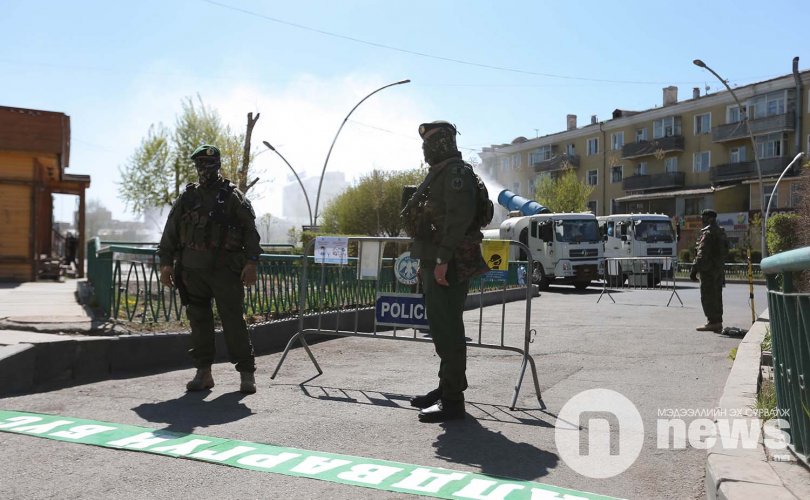
More businesses resume, shopping centers and markets to fully open May 22 www.montsame.mn
The Government of Mongolia has lifted the strict lockdown measures under the Red Level of emergency regime, which was imposed between April 10 and May 8, and the country has transferred to the Orange level emergency regime since May 8. Essential businesses and organizations of a total of 18 categories have remained fully or partially restricted under the Orange Level with a view to curb the spread of COVID-19 community infections.
Beginning from May 15, Saturday, four types of businesses and organizations that had been closed were additionally allowed to reopen in line with the decision of the State Emergency Commission. These are:
- Coffee shops with /at half capacity/,
- All types of training centers /limited to a maximum of 10 people/
- Fitness centers, gyms /at half capacity/,
- Swimming pools /at half capacity/.
The businesses reopening must choose to serve customers who received the second dose of COVID-19 vaccines at least 14 days earlier or those who had already recovered from COVID-19. The proof of vaccination is available on E-Mongolia, the government’s digital service platform.
In addition, inter-city movement is expected to become open to all fully vaccinated passengers from May 22 and travelers will no longer be subject to show approval from emergency commissions of rural aimags of destination.
At today's meeting of the managerial staff of Ulaanbaatar city administration, it was also decided to ensure preparations to reopen non-food retail sections of some busiest indoor and outdoor markets and shopping centers in Ulaanbaatar, such as Narantuul, Kharkhorin, New Sunday, Sunday Plaza, Night Market, Dunjingarav and Bumbugur on May 22.
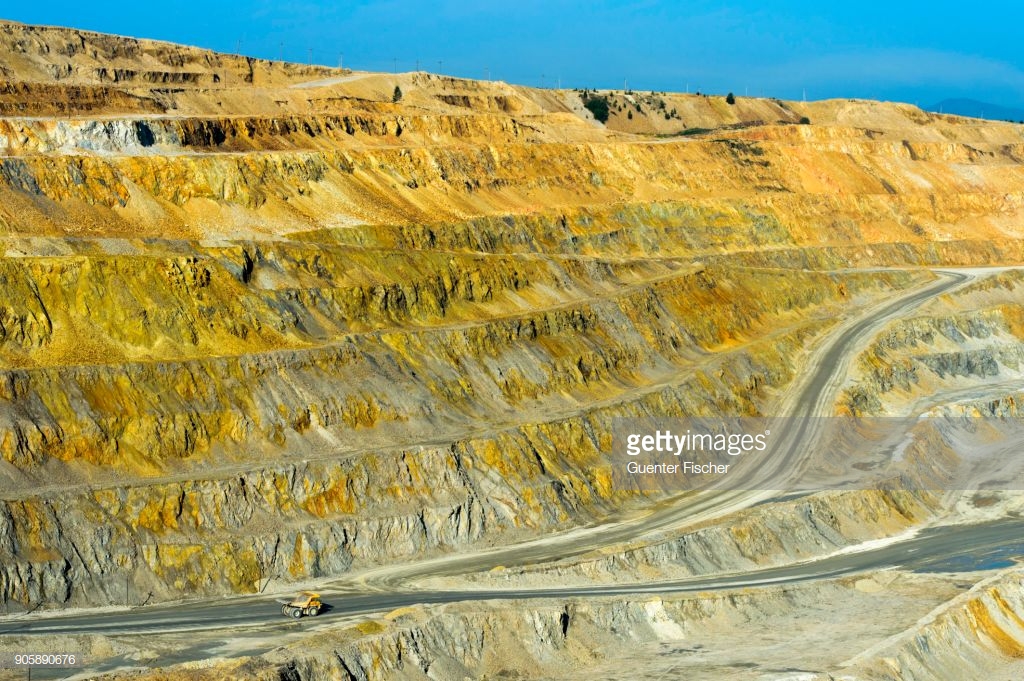
Prime Minister Oyun-Erdene works at Erdenet Mining Corporation www.montsame.mn
On May 14, Friday, Prime Minister L.Oyun-Erdene worked at the state-owned enterprise - Erdenet Mining Corporation (EMC) during his working trip to Orkhon aimag.
In the past two years, the Erdenet Mining Corporation has paid a total of MNT 1.9 trillion to both state and local budgets. Operating at the copper and molybdenum deposits in Erdenet since 1978, the Erdenet Mining Corporation has gradually increased its ore exploration capacity to 37 million tons and ore output to 32 million per annum.
During the PM’s visit to the mining factory, EMC General Director Kh.Badamsuren introduced about the technological reforms and current situation of the ore mining and processing. “Despite the lockdown measures and challenging times posed by the pandemic, the mining corporation had been yielding great achievements and exceeding its targets” highlighted the General Director. “In particular,
• output performance targets have been fulfilled with the help of technological improvements at the factories,
• 36.9 tons of ore were explored with total ore output amounting to 32.5 tons in 2020,
• 2020 sales revenue target set at MNT 2.2 trillion was exceeded by 16 percent,
• MNT 1.5 trillion were paid for state revenues in 2020 alone.”
“In addition, the 2021 production surpassed its targets by 100-143 percent by the first quarter of this year, which resulted in 38-percent of growth in sales revenues and 2.5-times of increase in net profit target. By the first three months of 2021, MNT 149 billion has been paid to local and state budgets, and the number is on the rise to MNT 266 billion as of current. Between 2017 and 2020, geological explorations with total cost of USD 29.4 million were performed by the corporation, extending the mine life by approximately by 30 years and making it possible to operate for another up to 70 years.”
Prime Minister L.Oyun-Erdene expressed gratitude on behalf of the government to the Erdenet Mining Corporation for its contribution to the Mongolian economy. The PM emphasized that the company has developed feasibility studies over the past two years to prove that it holds the capacity to take up the baton for one-tenth of the country’s MNT 10 trillion general budget and its operations can span another 60-70 years.
After noting that the government of Mongolia, on March 6, 2019, announced an emergency regime at the Erdenet Mining Corporation and Mongolrostsvetmet LLC to ensure that no operational interruptions occur and the government announced, on March 21, 2019, that the Erdenet Mining Corporation became fully state-owned enterprise, Prime Minister Oyun-Erdene said that the agenda of his visit to the Erdenet Mining Corporation is to present the government resolution which approves new developments at the mine.
According to PM, the aforementioned government decision was made on the basis of the current possibilities and economic resources of the EMC and the corporation has managed to save MNT 65.8 billion in 2019 and MNT 88 billion in 2020 only from its procurement activities throughout the period of emergency regime since 2019. “After becoming a state-owned company, the EMC for the first time become free from domestic and external debts for the first time in ten years.”
During the visit, the Prime Minister has become acquainted with the project proposal on the Industrial and Technological Park at the Erdenet Mine Corporation, consisting of ore dissolution project, molybdenum ore processing plant, copper smelting and concentrate and green growth center. The project aims to produce value added end products and increase the corporation’s daily sales revenue to MNT 28 billion by 2028.
Total investment funding of MNT 1.8 trillion is required for the Industrial and Technological Park development. The Erdenet Mining Corporation has delivered a proposal, feasibility study and design for the copper smelting and concentrate project to the Ministry of Mining and Heavy Industry for approval. The copper concentrate will have with annual capacity of 125,000 tons of cathode copper.
After hearing the presentation, the Prime Minister handed over the copy of the government resolution on the establishment of Copper Smelting-Metallurgical Plant and a certificate approving to establish the Industrial and Technological Park.
- «
- 1
- 2
- 3
- 4
- 5
- 6
- 7
- 8
- 9
- 10
- 11
- 12
- 13
- 14
- 15
- 16
- 17
- 18
- 19
- 20
- 21
- 22
- 23
- 24
- 25
- 26
- 27
- 28
- 29
- 30
- 31
- 32
- 33
- 34
- 35
- 36
- 37
- 38
- 39
- 40
- 41
- 42
- 43
- 44
- 45
- 46
- 47
- 48
- 49
- 50
- 51
- 52
- 53
- 54
- 55
- 56
- 57
- 58
- 59
- 60
- 61
- 62
- 63
- 64
- 65
- 66
- 67
- 68
- 69
- 70
- 71
- 72
- 73
- 74
- 75
- 76
- 77
- 78
- 79
- 80
- 81
- 82
- 83
- 84
- 85
- 86
- 87
- 88
- 89
- 90
- 91
- 92
- 93
- 94
- 95
- 96
- 97
- 98
- 99
- 100
- 101
- 102
- 103
- 104
- 105
- 106
- 107
- 108
- 109
- 110
- 111
- 112
- 113
- 114
- 115
- 116
- 117
- 118
- 119
- 120
- 121
- 122
- 123
- 124
- 125
- 126
- 127
- 128
- 129
- 130
- 131
- 132
- 133
- 134
- 135
- 136
- 137
- 138
- 139
- 140
- 141
- 142
- 143
- 144
- 145
- 146
- 147
- 148
- 149
- 150
- 151
- 152
- 153
- 154
- 155
- 156
- 157
- 158
- 159
- 160
- 161
- 162
- 163
- 164
- 165
- 166
- 167
- 168
- 169
- 170
- 171
- 172
- 173
- 174
- 175
- 176
- 177
- 178
- 179
- 180
- 181
- 182
- 183
- 184
- 185
- 186
- 187
- 188
- 189
- 190
- 191
- 192
- 193
- 194
- 195
- 196
- 197
- 198
- 199
- 200
- 201
- 202
- 203
- 204
- 205
- 206
- 207
- 208
- 209
- 210
- 211
- 212
- 213
- 214
- 215
- 216
- 217
- 218
- 219
- 220
- 221
- 222
- 223
- 224
- 225
- 226
- 227
- 228
- 229
- 230
- 231
- 232
- 233
- 234
- 235
- 236
- 237
- 238
- 239
- 240
- 241
- 242
- 243
- 244
- 245
- 246
- 247
- 248
- 249
- 250
- 251
- 252
- 253
- 254
- 255
- 256
- 257
- 258
- 259
- 260
- 261
- 262
- 263
- 264
- 265
- 266
- 267
- 268
- 269
- 270
- 271
- 272
- 273
- 274
- 275
- 276
- 277
- 278
- 279
- 280
- 281
- 282
- 283
- 284
- 285
- 286
- 287
- 288
- 289
- 290
- 291
- 292
- 293
- 294
- 295
- 296
- 297
- 298
- 299
- 300
- 301
- 302
- 303
- 304
- 305
- 306
- 307
- 308
- 309
- 310
- 311
- 312
- 313
- 314
- 315
- 316
- 317
- 318
- 319
- 320
- 321
- 322
- 323
- 324
- 325
- 326
- 327
- 328
- 329
- 330
- 331
- 332
- 333
- 334
- 335
- 336
- 337
- 338
- 339
- 340
- 341
- 342
- 343
- 344
- 345
- 346
- 347
- 348
- 349
- 350
- 351
- 352
- 353
- 354
- 355
- 356
- 357
- 358
- 359
- 360
- 361
- 362
- 363
- 364
- 365
- 366
- 367
- 368
- 369
- 370
- 371
- 372
- 373
- 374
- 375
- 376
- 377
- 378
- 379
- 380
- 381
- 382
- 383
- 384
- 385
- 386
- 387
- 388
- 389
- 390
- 391
- 392
- 393
- 394
- 395
- 396
- 397
- 398
- 399
- 400
- 401
- 402
- 403
- 404
- 405
- 406
- 407
- 408
- 409
- 410
- 411
- 412
- 413
- 414
- 415
- 416
- 417
- 418
- 419
- 420
- 421
- 422
- 423
- 424
- 425
- 426
- 427
- 428
- 429
- 430
- 431
- 432
- 433
- 434
- 435
- 436
- 437
- 438
- 439
- 440
- 441
- 442
- 443
- 444
- 445
- 446
- 447
- 448
- 449
- 450
- 451
- 452
- 453
- 454
- 455
- 456
- 457
- 458
- 459
- 460
- 461
- 462
- 463
- 464
- 465
- 466
- 467
- 468
- 469
- 470
- 471
- 472
- 473
- 474
- 475
- 476
- 477
- 478
- 479
- 480
- 481
- 482
- 483
- 484
- 485
- 486
- 487
- 488
- 489
- 490
- 491
- 492
- 493
- 494
- 495
- 496
- 497
- 498
- 499
- 500
- 501
- 502
- 503
- 504
- 505
- 506
- 507
- 508
- 509
- 510
- 511
- 512
- 513
- 514
- 515
- 516
- 517
- 518
- 519
- 520
- 521
- 522
- 523
- 524
- 525
- 526
- 527
- 528
- 529
- 530
- 531
- 532
- 533
- 534
- 535
- 536
- 537
- 538
- 539
- 540
- 541
- 542
- 543
- 544
- 545
- 546
- 547
- 548
- 549
- 550
- 551
- 552
- 553
- 554
- 555
- 556
- 557
- 558
- 559
- 560
- 561
- 562
- 563
- 564
- 565
- 566
- 567
- 568
- 569
- 570
- 571
- 572
- 573
- 574
- 575
- 576
- 577
- 578
- 579
- 580
- 581
- 582
- 583
- 584
- 585
- 586
- 587
- 588
- 589
- 590
- 591
- 592
- 593
- 594
- 595
- 596
- 597
- 598
- 599
- 600
- 601
- 602
- 603
- 604
- 605
- 606
- 607
- 608
- 609
- 610
- 611
- 612
- 613
- 614
- 615
- 616
- 617
- 618
- 619
- 620
- 621
- 622
- 623
- 624
- 625
- 626
- 627
- 628
- 629
- 630
- 631
- 632
- 633
- 634
- 635
- 636
- 637
- 638
- 639
- 640
- 641
- 642
- 643
- 644
- 645
- 646
- 647
- 648
- 649
- 650
- 651
- 652
- 653
- 654
- 655
- 656
- 657
- 658
- 659
- 660
- 661
- 662
- 663
- 664
- 665
- 666
- 667
- 668
- 669
- 670
- 671
- 672
- 673
- 674
- 675
- 676
- 677
- 678
- 679
- 680
- 681
- 682
- 683
- 684
- 685
- 686
- 687
- 688
- 689
- 690
- 691
- 692
- 693
- 694
- 695
- 696
- 697
- 698
- 699
- 700
- 701
- 702
- 703
- 704
- 705
- 706
- 707
- 708
- 709
- 710
- 711
- 712
- 713
- 714
- 715
- 716
- 717
- 718
- 719
- 720
- 721
- 722
- 723
- 724
- 725
- 726
- 727
- 728
- 729
- 730
- 731
- 732
- 733
- 734
- 735
- 736
- 737
- 738
- 739
- 740
- 741
- 742
- 743
- 744
- 745
- 746
- 747
- 748
- 749
- 750
- 751
- 752
- 753
- 754
- 755
- 756
- 757
- 758
- 759
- 760
- 761
- 762
- 763
- 764
- 765
- 766
- 767
- 768
- 769
- 770
- 771
- 772
- 773
- 774
- 775
- 776
- 777
- 778
- 779
- 780
- 781
- 782
- 783
- 784
- 785
- 786
- 787
- 788
- 789
- 790
- 791
- 792
- 793
- 794
- 795
- 796
- 797
- 798
- 799
- 800
- 801
- 802
- 803
- 804
- 805
- 806
- 807
- 808
- 809
- 810
- 811
- 812
- 813
- 814
- 815
- 816
- 817
- 818
- 819
- 820
- 821
- 822
- 823
- 824
- 825
- 826
- 827
- 828
- 829
- 830
- 831
- 832
- 833
- 834
- 835
- 836
- 837
- 838
- 839
- 840
- 841
- 842
- 843
- 844
- 845
- 846
- 847
- 848
- 849
- 850
- 851
- 852
- 853
- 854
- 855
- 856
- 857
- 858
- 859
- 860
- 861
- 862
- 863
- 864
- 865
- 866
- 867
- 868
- 869
- 870
- 871
- 872
- 873
- 874
- 875
- 876
- 877
- 878
- 879
- 880
- 881
- 882
- 883
- 884
- 885
- 886
- 887
- 888
- 889
- 890
- 891
- 892
- 893
- 894
- 895
- 896
- 897
- 898
- 899
- 900
- 901
- 902
- 903
- 904
- 905
- 906
- 907
- 908
- 909
- 910
- 911
- 912
- 913
- 914
- 915
- 916
- 917
- 918
- 919
- 920
- 921
- 922
- 923
- 924
- 925
- 926
- 927
- 928
- 929
- 930
- 931
- 932
- 933
- 934
- 935
- 936
- 937
- 938
- 939
- 940
- 941
- 942
- 943
- 944
- 945
- 946
- 947
- 948
- 949
- 950
- 951
- 952
- 953
- 954
- 955
- 956
- 957
- 958
- 959
- 960
- 961
- 962
- 963
- 964
- 965
- 966
- 967
- 968
- 969
- 970
- 971
- 972
- 973
- 974
- 975
- 976
- 977
- 978
- 979
- 980
- 981
- 982
- 983
- 984
- 985
- 986
- 987
- 988
- 989
- 990
- 991
- 992
- 993
- 994
- 995
- 996
- 997
- 998
- 999
- 1000
- 1001
- 1002
- 1003
- 1004
- 1005
- 1006
- 1007
- 1008
- 1009
- 1010
- 1011
- 1012
- 1013
- 1014
- 1015
- 1016
- 1017
- 1018
- 1019
- 1020
- 1021
- 1022
- 1023
- 1024
- 1025
- 1026
- 1027
- 1028
- 1029
- 1030
- 1031
- 1032
- 1033
- 1034
- 1035
- 1036
- 1037
- 1038
- 1039
- 1040
- 1041
- 1042
- 1043
- 1044
- 1045
- 1046
- 1047
- 1048
- 1049
- 1050
- 1051
- 1052
- 1053
- 1054
- 1055
- 1056
- 1057
- 1058
- 1059
- 1060
- 1061
- 1062
- 1063
- 1064
- 1065
- 1066
- 1067
- 1068
- 1069
- 1070
- 1071
- 1072
- 1073
- 1074
- 1075
- 1076
- 1077
- 1078
- 1079
- 1080
- 1081
- 1082
- 1083
- 1084
- 1085
- 1086
- 1087
- 1088
- 1089
- 1090
- 1091
- 1092
- 1093
- 1094
- 1095
- 1096
- 1097
- 1098
- 1099
- 1100
- 1101
- 1102
- 1103
- 1104
- 1105
- 1106
- 1107
- 1108
- 1109
- 1110
- 1111
- 1112
- 1113
- 1114
- 1115
- 1116
- 1117
- 1118
- 1119
- 1120
- 1121
- 1122
- 1123
- 1124
- 1125
- 1126
- 1127
- 1128
- 1129
- 1130
- 1131
- 1132
- 1133
- 1134
- 1135
- 1136
- 1137
- 1138
- 1139
- 1140
- 1141
- 1142
- 1143
- 1144
- 1145
- 1146
- 1147
- 1148
- 1149
- 1150
- 1151
- 1152
- 1153
- 1154
- 1155
- 1156
- 1157
- 1158
- 1159
- 1160
- 1161
- 1162
- 1163
- 1164
- 1165
- 1166
- 1167
- 1168
- 1169
- 1170
- 1171
- 1172
- 1173
- 1174
- 1175
- 1176
- 1177
- 1178
- 1179
- 1180
- 1181
- 1182
- 1183
- 1184
- 1185
- 1186
- 1187
- 1188
- 1189
- 1190
- 1191
- 1192
- 1193
- 1194
- 1195
- 1196
- 1197
- 1198
- 1199
- 1200
- 1201
- 1202
- 1203
- 1204
- 1205
- 1206
- 1207
- 1208
- 1209
- 1210
- 1211
- 1212
- 1213
- 1214
- 1215
- 1216
- 1217
- 1218
- 1219
- 1220
- 1221
- 1222
- 1223
- 1224
- 1225
- 1226
- 1227
- 1228
- 1229
- 1230
- 1231
- 1232
- 1233
- 1234
- 1235
- 1236
- 1237
- 1238
- 1239
- 1240
- 1241
- 1242
- 1243
- 1244
- 1245
- 1246
- 1247
- 1248
- 1249
- 1250
- 1251
- 1252
- 1253
- 1254
- 1255
- 1256
- 1257
- 1258
- 1259
- 1260
- 1261
- 1262
- 1263
- 1264
- 1265
- 1266
- 1267
- 1268
- 1269
- 1270
- 1271
- 1272
- 1273
- 1274
- 1275
- 1276
- 1277
- 1278
- 1279
- 1280
- 1281
- 1282
- 1283
- 1284
- 1285
- 1286
- 1287
- 1288
- 1289
- 1290
- 1291
- 1292
- 1293
- 1294
- 1295
- 1296
- 1297
- 1298
- 1299
- 1300
- 1301
- 1302
- 1303
- 1304
- 1305
- 1306
- 1307
- 1308
- 1309
- 1310
- 1311
- 1312
- 1313
- 1314
- 1315
- 1316
- 1317
- 1318
- 1319
- 1320
- 1321
- 1322
- 1323
- 1324
- 1325
- 1326
- 1327
- 1328
- 1329
- 1330
- 1331
- 1332
- 1333
- 1334
- 1335
- 1336
- 1337
- 1338
- 1339
- 1340
- 1341
- 1342
- 1343
- 1344
- 1345
- 1346
- 1347
- 1348
- 1349
- 1350
- 1351
- 1352
- 1353
- 1354
- 1355
- 1356
- 1357
- 1358
- 1359
- 1360
- 1361
- 1362
- 1363
- 1364
- 1365
- 1366
- 1367
- 1368
- 1369
- 1370
- 1371
- 1372
- 1373
- 1374
- 1375
- 1376
- 1377
- 1378
- 1379
- 1380
- 1381
- 1382
- 1383
- 1384
- 1385
- 1386
- 1387
- 1388
- 1389
- 1390
- 1391
- 1392
- 1393
- 1394
- 1395
- 1396
- 1397
- 1398
- 1399
- 1400
- 1401
- 1402
- 1403
- 1404
- 1405
- 1406
- 1407
- 1408
- 1409
- 1410
- 1411
- 1412
- 1413
- 1414
- 1415
- 1416
- 1417
- 1418
- 1419
- 1420
- 1421
- 1422
- 1423
- 1424
- 1425
- 1426
- 1427
- 1428
- 1429
- 1430
- 1431
- 1432
- 1433
- 1434
- 1435
- 1436
- 1437
- 1438
- 1439
- 1440
- 1441
- 1442
- 1443
- 1444
- 1445
- 1446
- 1447
- 1448
- 1449
- 1450
- 1451
- 1452
- 1453
- 1454
- 1455
- 1456
- 1457
- 1458
- 1459
- 1460
- 1461
- 1462
- 1463
- 1464
- 1465
- 1466
- 1467
- 1468
- 1469
- 1470
- 1471
- 1472
- 1473
- 1474
- 1475
- 1476
- 1477
- 1478
- 1479
- 1480
- 1481
- 1482
- 1483
- 1484
- 1485
- 1486
- 1487
- 1488
- 1489
- 1490
- 1491
- 1492
- 1493
- 1494
- 1495
- 1496
- 1497
- 1498
- 1499
- 1500
- 1501
- 1502
- 1503
- 1504
- 1505
- 1506
- 1507
- 1508
- 1509
- 1510
- 1511
- 1512
- 1513
- 1514
- 1515
- 1516
- 1517
- 1518
- 1519
- 1520
- 1521
- 1522
- 1523
- 1524
- 1525
- 1526
- 1527
- 1528
- 1529
- 1530
- 1531
- 1532
- 1533
- 1534
- 1535
- 1536
- 1537
- 1538
- 1539
- 1540
- 1541
- 1542
- 1543
- 1544
- 1545
- 1546
- 1547
- 1548
- 1549
- 1550
- 1551
- 1552
- 1553
- 1554
- 1555
- 1556
- 1557
- 1558
- 1559
- 1560
- 1561
- 1562
- 1563
- 1564
- 1565
- 1566
- 1567
- 1568
- 1569
- 1570
- 1571
- 1572
- 1573
- 1574
- 1575
- 1576
- 1577
- 1578
- 1579
- 1580
- 1581
- 1582
- 1583
- 1584
- 1585
- 1586
- 1587
- 1588
- 1589
- 1590
- 1591
- 1592
- 1593
- 1594
- 1595
- 1596
- 1597
- 1598
- 1599
- 1600
- 1601
- 1602
- 1603
- 1604
- 1605
- 1606
- 1607
- 1608
- 1609
- 1610
- 1611
- 1612
- 1613
- 1614
- 1615
- 1616
- 1617
- 1618
- 1619
- 1620
- 1621
- 1622
- 1623
- 1624
- 1625
- 1626
- 1627
- 1628
- 1629
- 1630
- 1631
- 1632
- 1633
- 1634
- 1635
- 1636
- 1637
- 1638
- 1639
- 1640
- 1641
- 1642
- 1643
- 1644
- 1645
- 1646
- 1647
- 1648
- 1649
- 1650
- 1651
- 1652
- 1653
- 1654
- 1655
- 1656
- 1657
- 1658
- 1659
- 1660
- 1661
- 1662
- 1663
- 1664
- 1665
- 1666
- 1667
- 1668
- 1669
- 1670
- 1671
- 1672
- 1673
- 1674
- 1675
- 1676
- 1677
- 1678
- 1679
- 1680
- 1681
- 1682
- 1683
- 1684
- 1685
- 1686
- 1687
- 1688
- 1689
- 1690
- 1691
- 1692
- 1693
- 1694
- 1695
- 1696
- 1697
- 1698
- 1699
- 1700
- 1701
- 1702
- 1703
- 1704
- 1705
- 1706
- 1707
- 1708
- 1709
- 1710
- 1711
- 1712
- 1713
- 1714
- »






